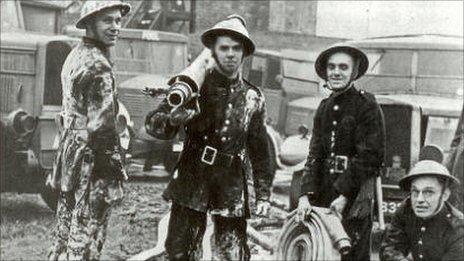Ceremony to mark Nottingham's biggest air raid
- Published
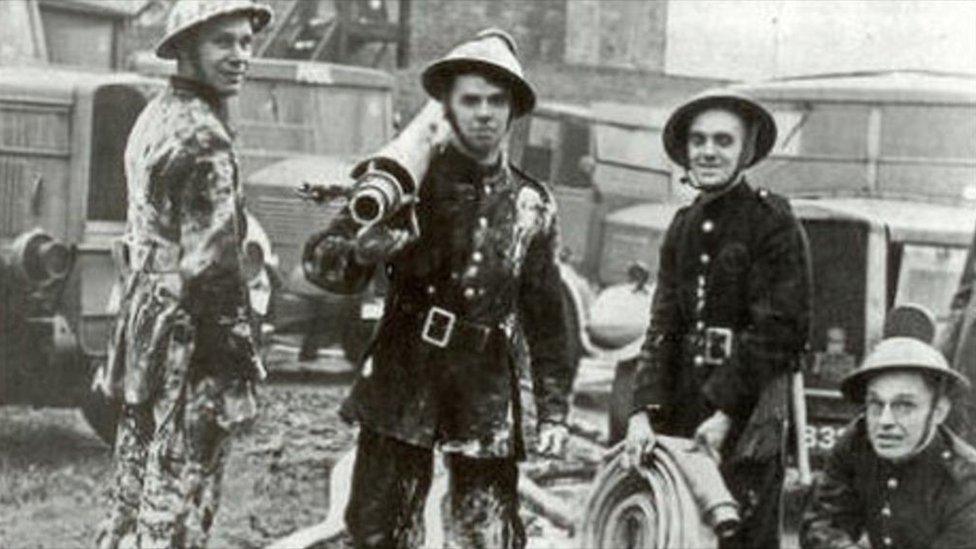
Firefighters risked their lives to bring fires under control during World War Two
A ceremony has marked the 75th anniversary of a World War Two air raid in which 200 people were killed.
About 1,100 bombs were dropped on Nottingham by the German Luftwaffe on 8 and 9 May 1941.
Twelve firefighters, or civil defence personnel, were among those who were killed.
Dave Needham, a former firefighter who campaigned to raise money for a £20,000 memorial, said the service was to mark the sacrifices made.
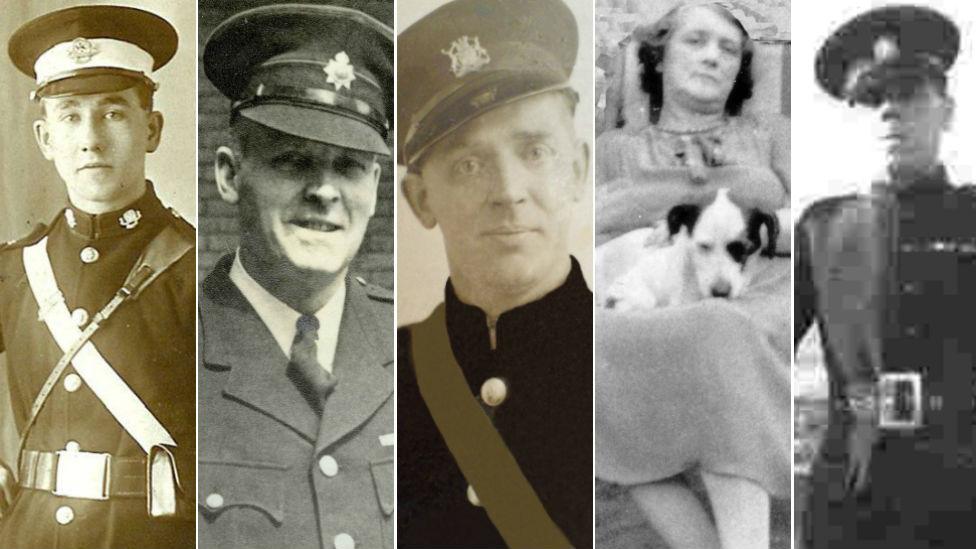
Firefighters who have died during service in Nottinghamshire (left to right) C Theaker, F Bennett, C Farndon, R Willis and J Shelley
Mr Needham, from the Fire Service Preservation Group, said: "It's about remembering those who put their lives on the line for others, it's about humanity and service to people.
"They were ordinary people like you and me, but they did extraordinary things to help others."
Nottingham was not hit as badly as some other cities, but during the evening, and into the next morning, it suffered its "biggest" attack during the conflict.
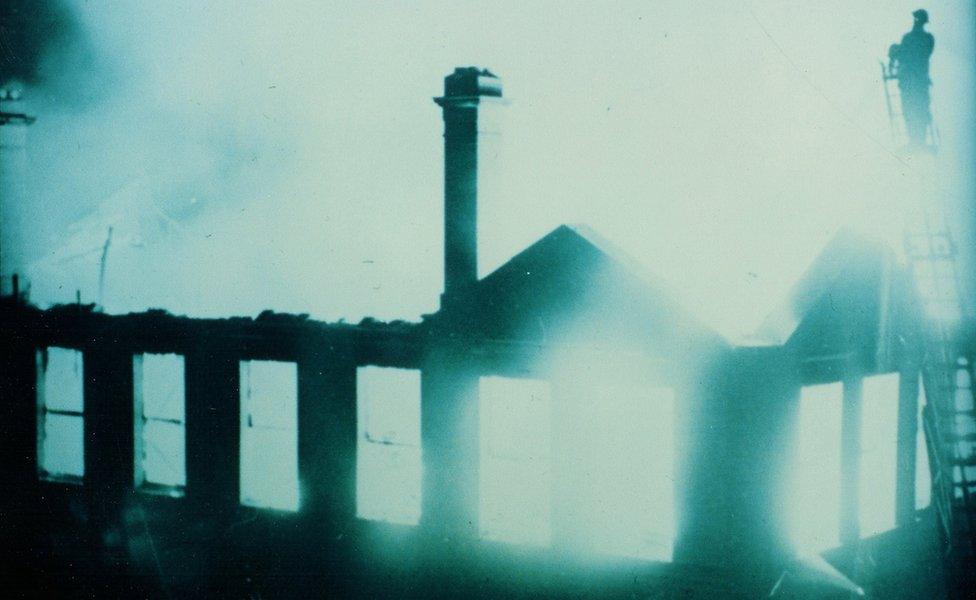
Fires broke out all over Nottingham when the bombs fell
The areas of Sneinton, Carlton, Colwick and West Bridgford were most affected and Mr Needham said water from two reservoirs was needed to bring the fires under control.
He said despite the fatalities, hundreds of injuries and damage to the city, Nottingham did not suffer a "knockout blow".
"Usually there would be a follow-up raid, just when the fire fighters are exhausted, but it fizzled out to nothing," he said.
"Nottingham would have looked very different today had they come back."
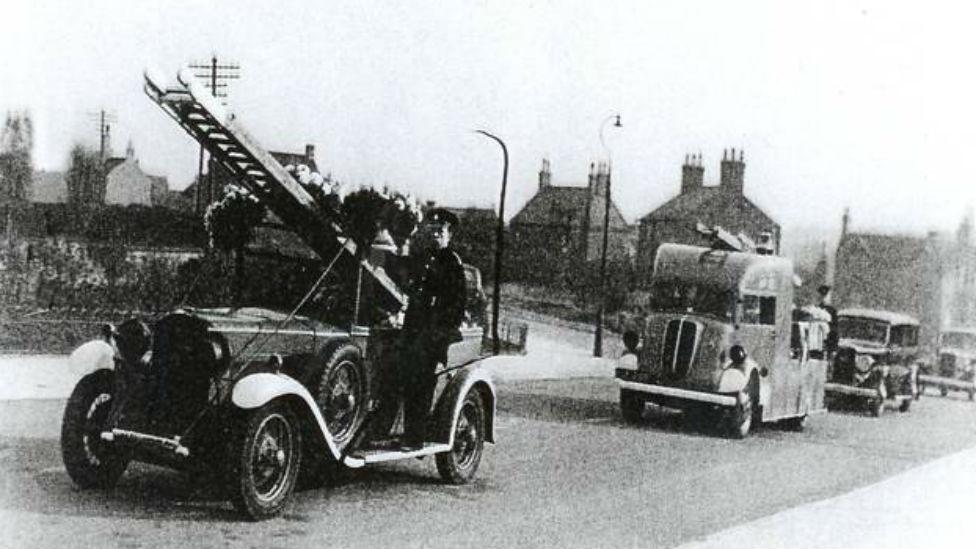
Funeral for Philip Smith who died during the attack in 1941
The service was held from 18:00 BST at the memorial stone at St Mary's Church, which lists 35 men and two women who died on duty between 1940 and 1999.
An air raid siren on the roof of the Galleries of Justice Museum, near the church, sounded for one minute to signal the beginning of a minute's silence.
- Published9 May 2011
